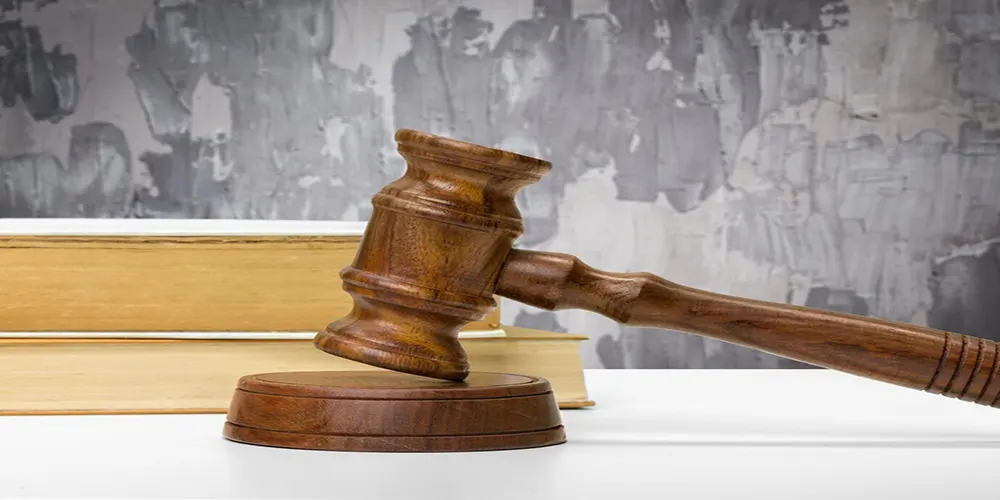

Criminal Law: Understanding Crimes and Punishments
28/06/2024 Richard P. 2115
Criminal law is like a set of rules that help keep our society safe and fair. It sets boundaries for what is okay and not okay to do, and it gives consequences for when people break those rules. The main goal of criminal law is to protect people and communities from harm, to discourage bad behavior, and to keep things running smoothly. It's important for everyone to understand these rules so that justice can be served and people's rights can be protected.
What is Criminal Law?
Criminal law is a set of rules that says what kinds of behavior are not allowed because they could hurt people, go against what's right, or disrupt society. It's different from civil law, which deals with disagreements between people. When someone breaks these criminal laws, it's called a crime, and it can range from small mistakes to big, serious offenses that have serious consequences.
Types of Crimes
Felonies: Felonies are serious crimes punishable by imprisonment for more than one year or, in some cases, by death. These offenses include murder, rape, burglary, and drug trafficking. Felony convictions typically result in substantial penalties, including imprisonment in state or federal prisons.
Misdemeanors: Misdemeanors are less serious offenses punishable by imprisonment for up to one year, fines, or both. Common misdemeanors include petty theft, simple assault, and disorderly conduct. While less severe than felonies, misdemeanors still carry legal consequences and may result in incarceration in local jails or payment of fines.
Legal Principles in Criminal Law
Criminal Intent: Criminal intent, also known as mens rea, refers to the mental state of the offender at the time the crime was committed. Establishing criminal intent is crucial in determining guilt and appropriate sentencing. Crimes may be classified based on intent, such as intentional crimes (where intent to commit the offense is clear) and negligent crimes (where the offender acts recklessly or negligently).
Defenses: Criminal law provides various defenses that individuals may invoke to challenge accusations of wrongdoing. Common defenses include self-defense, insanity, duress, and mistaken identity. Each defense hinges on specific legal principles and factual circumstances that mitigate culpability or justify the defendant's actions.
Sentencing: Sentencing in criminal law involves determining the appropriate punishment for convicted offenders. Factors influencing sentencing include the severity of the crime, the defendant's criminal history, mitigating or aggravating circumstances, and statutory guidelines. Sentences may range from probation and fines for misdemeanors to lengthy imprisonment or capital punishment for felonies.
Importance of Understanding Criminal Law
Protection of Rights: Knowledge of criminal law safeguards individuals' rights during interactions with law enforcement, ensuring due process and fair treatment under the law. Understanding legal procedures, such as search and seizure protocols and Miranda rights, empowers individuals to assert their rights effectively.
Responsibility and Accountability: Understanding criminal law reinforces societal norms and expectations, promoting accountability for one's actions. It underscores the consequences of unlawful behavior and encourages adherence to ethical standards and legal obligations.
Advocacy and Justice: Familiarity with criminal law enables individuals to advocate for justice and promote reforms in the legal system. Informed citizens can participate in discussions on crime prevention, rehabilitation programs, and sentencing reforms to foster a more equitable and effective criminal justice system.
Criminal law plays a pivotal role in safeguarding society, defining criminal conduct, and prescribing penalties for violations. Understanding its principles, from defining criminal intent and recognizing defenses to comprehending sentencing guidelines, is essential for navigating legal challenges and upholding justice. By promoting accountability, protecting individual rights, and fostering a sense of civic responsibility, criminal law serves as a cornerstone of a just and orderly society. Embracing its complexities empowers individuals to contribute to a legal framework that balances punishment with rehabilitation and promotes societal well-being.
Recent Blogs
Effective Strategies for Man ...
09/01/2025 1245
The Role of Credit Insurance ...
07/01/2025 469
The Rights and Protections f ...
05/01/2025 833
Comparing Global Tax Systems ...
03/01/2025 699
External Training and Certif ...
01/01/2025 471
Trending Blogs
Collective Bargaining and Un ...
30/06/2024 13532
Collision Insurance: Coverag ...
19/05/2024 13102
Introduction to Financial La ...
07/04/2024 12980
Introduction to Immigration ...
11/04/2024 12862
Self-Employment Income: Star ...
19/04/2024 12688










